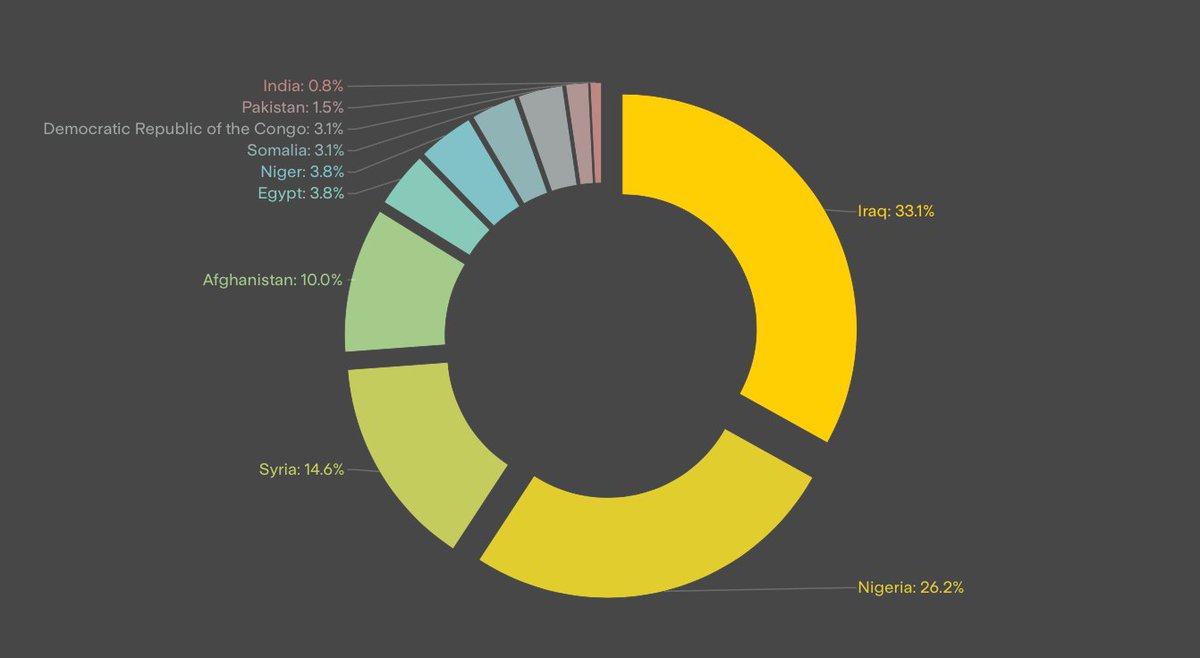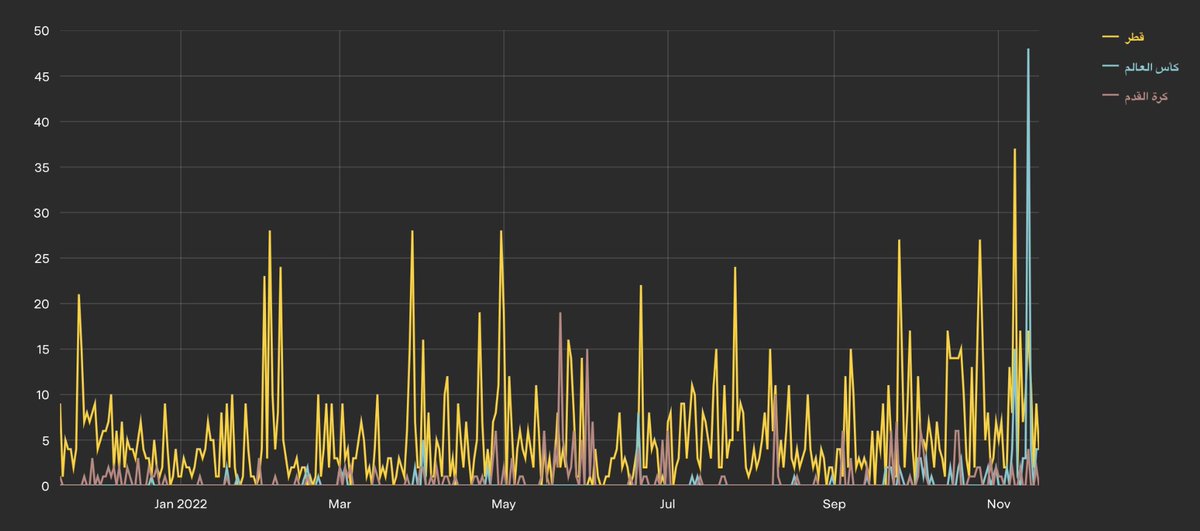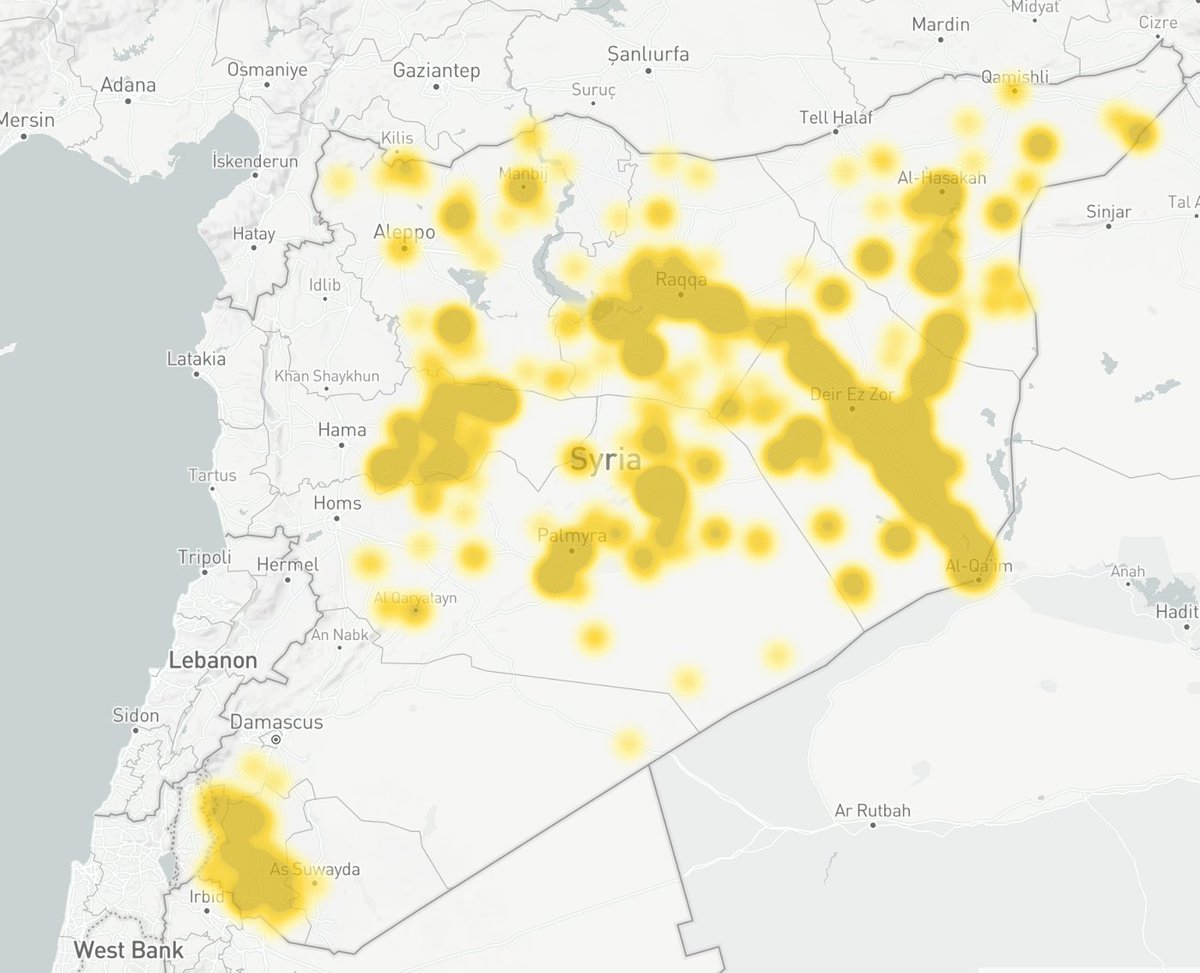1. Here’s a new update on #IS’s global Ramadan campaign.
In the last week, #IS has deployed more attacks than at any other point since last Ramadan.
In the last week, #IS has deployed more attacks than at any other point since last Ramadan.
2. Since 17 April, #IS has carried out some 132 attacks as part of this campaign.
That's nearly three times more ops per day than usual.
That's nearly three times more ops per day than usual.

3. #IS’s attacks have been spread far and wide, but with four clear front-runners: #Iraq, #Nigeria, #Syria, and #Afghanistan.
#Iraq: 43
#Nigeria: 34
#Syria: 19
#Afghanistan: 13
#Niger: 5
#DRC: 4
#Egypt: 5
#Somalia: 4
#Pakistan: 2
#India: 1
#Libya: 1
#Uzbekistan: 1
#Iraq: 43
#Nigeria: 34
#Syria: 19
#Afghanistan: 13
#Niger: 5
#DRC: 4
#Egypt: 5
#Somalia: 4
#Pakistan: 2
#India: 1
#Libya: 1
#Uzbekistan: 1

4. Notably, while #IS has reported the largest number of attacks from #Iraq, it has claimed *four times* more “confirmed” kills from #Nigeria than anywhere else. 

5. As part of the campaign, #IS has been attacking outside its normal sphere of influence.
In #Nigeria, for example, it has deployed two operations in #Taraba and one in #Kogi, 500 km and 1,000 km respectively from its heartlands in #Borno.
In #Nigeria, for example, it has deployed two operations in #Taraba and one in #Kogi, 500 km and 1,000 km respectively from its heartlands in #Borno.

6. All that said, the silence from #IS's affiliates in #Mozambique and the #Sahel has persisted, and there have so far been no truly major strategic operations in #Iraq or #Syria.
On that basis, so far at least, this campaign is all about image.
L: #Sahel
R: #Mozambique

On that basis, so far at least, this campaign is all about image.
L: #Sahel
R: #Mozambique


7. As for #IS’s supporters online: after initially rallying on the day of the campaign declaration, they’ve calmed down.
We’re now only seeing moderately more activity than usual, this raid notwithstanding.
This will of course change if some big happens.
We’re now only seeing moderately more activity than usual, this raid notwithstanding.
This will of course change if some big happens.

8. As the campaign continues in the coming days, we’ll be monitoring it closely.
Visit extrac.io for more information.
Visit extrac.io for more information.
• • •
Missing some Tweet in this thread? You can try to
force a refresh
































